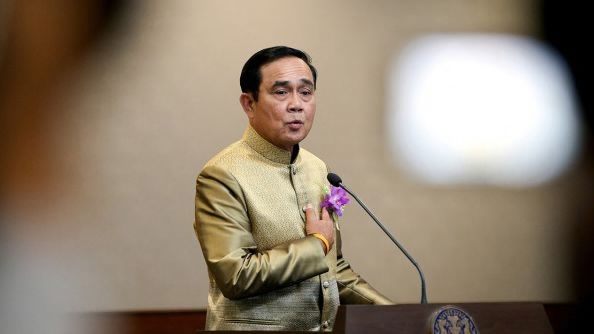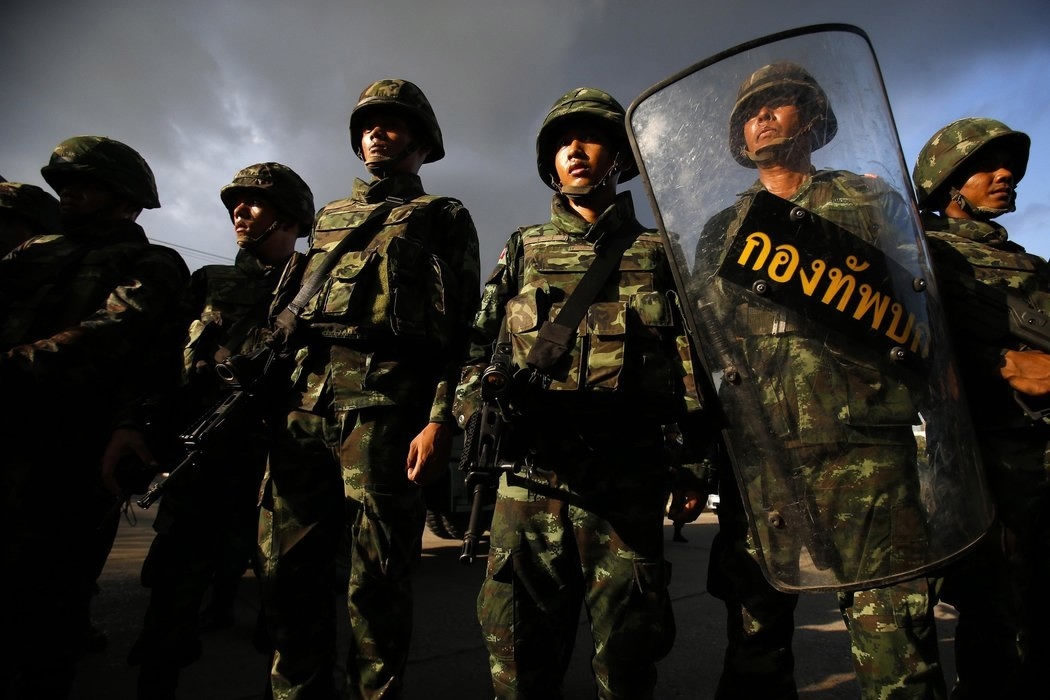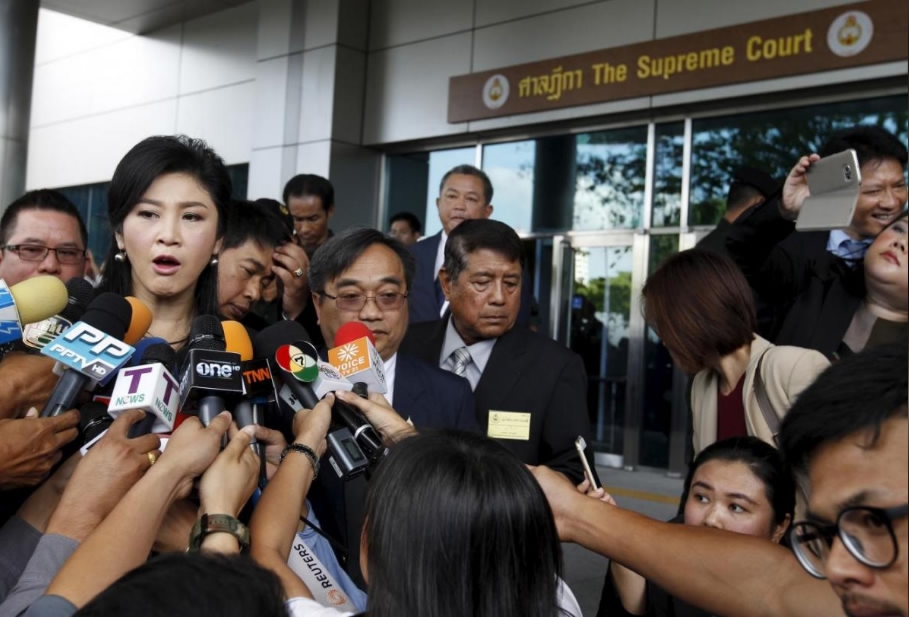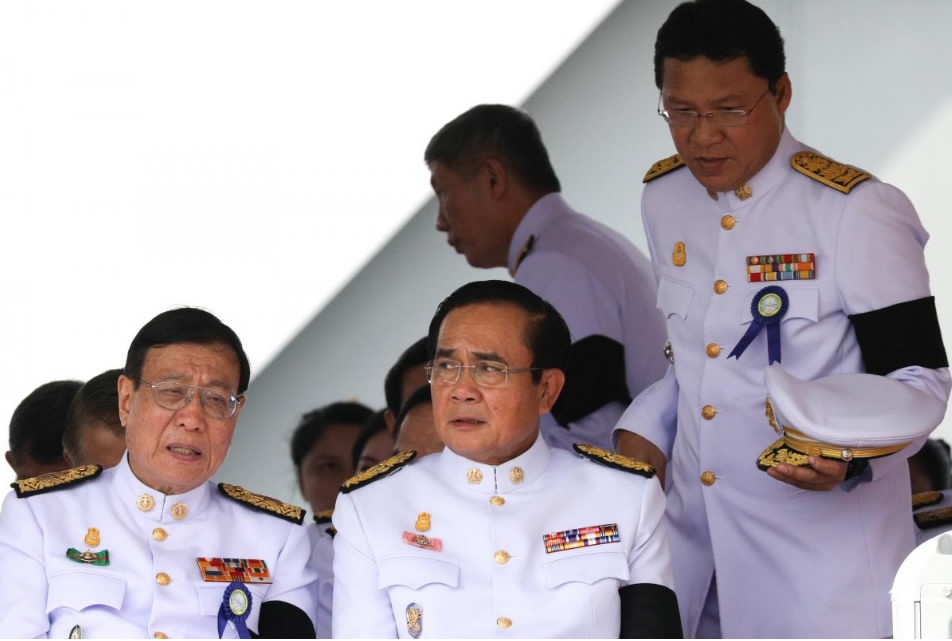
World
14:36, 30-Mar-2018
Thailand vows to lift politics ban in June
CGTN

Thailand will lift a near four-year ban on political activity in June, an official said Friday, as space for debate slowly expands in the kingdom with polls promised for next year.
Political gatherings of five or more people have been outlawed since Thailand's army grabbed power in a May 2014 coup, booting Yingluck Shinawatra's elected government from power.
The generals, who have repeatedly backtracked on promised returns to democracy, insist an election will be held "no later" than February 2019.

May, 2014: The Thai military seizes control of the country. /Reuters Photo
May, 2014: The Thai military seizes control of the country. /Reuters Photo
Yet while parties have been allowed to register in anticipation of the vote, they remain barred from discussing policy or meeting without Thai government permission.
Politicians have demanded the ban be lifted, while critics accuse the government of buying time to bolster the chances of new army-linked parties in the upcoming election.
A defense ministry spokesman said the moratorium would soon be lifted, confirming comments the government's number two made to the local press on Thursday.
"The initial plan is that the ban would be lifted in June so that newly set-up parties are ready," Lieutenant-General Kongcheep Tantravanich told AFP.

Jan. 15, 2016: Ousted former Thai Prime Minister Yingluck Shinawatra speaks to the media as she arrives at the Supreme Court, for a trial on criminal negligence looking into her role in a debt-ridden rice subsidy scheme during her administration, in Bangkok. /Reuters Photo
Jan. 15, 2016: Ousted former Thai Prime Minister Yingluck Shinawatra speaks to the media as she arrives at the Supreme Court, for a trial on criminal negligence looking into her role in a debt-ridden rice subsidy scheme during her administration, in Bangkok. /Reuters Photo
"While the big existing parties are already ready, the new parties need time... they will start their activities together in June," he added.
The restricted climate has left questions swirling about leadership shuffles in Thailand's biggest bloc – the toppled Pheu Thai party, which has dominated elections for a decade but has been repeatedly cut down by coups and court rulings.
The faction – the nemesis of the government and Bangkok elite – is officially without a leader after both of its figureheads were driven into self-exile in the wake of 2006 and 2014 coups.
The exiled pair, former premiers and siblings Yingluck and Thaksin Shinawatra, made a rare public appearance at a book launch for a Japanese minister in Tokyo on Thursday.

May 12, 2017: Thailand's Prime Minister Prayuth Chan-ocha (C) attends the annual Royal Ploughing Ceremony in Bangkok. /Reuters Photo
May 12, 2017: Thailand's Prime Minister Prayuth Chan-ocha (C) attends the annual Royal Ploughing Ceremony in Bangkok. /Reuters Photo
It was one of Yingluck's first public sightings since she fled Thailand last August ahead of a verdict in a court case she decried as a political witch-hunt.
Analysts say both leaders are unlikely to return to Thai soil any time soon after being convicted of graft charges in absentia.
But they may continue Thaksin's approach of directing the powerhouse party from abroad.
The latest coup is widely seen as an effort to squeeze the Shinawatras out of Thai politics for good.
The government's new charter limits the purview of elected politicians while boosting the clout of appointed officials.
The next administration will also be straightjacketed by a "legally-binding" 20-year policy plan hatched by the government.
Source(s): AFP

SITEMAP
Copyright © 2018 CGTN. Beijing ICP prepared NO.16065310-3
Copyright © 2018 CGTN. Beijing ICP prepared NO.16065310-3